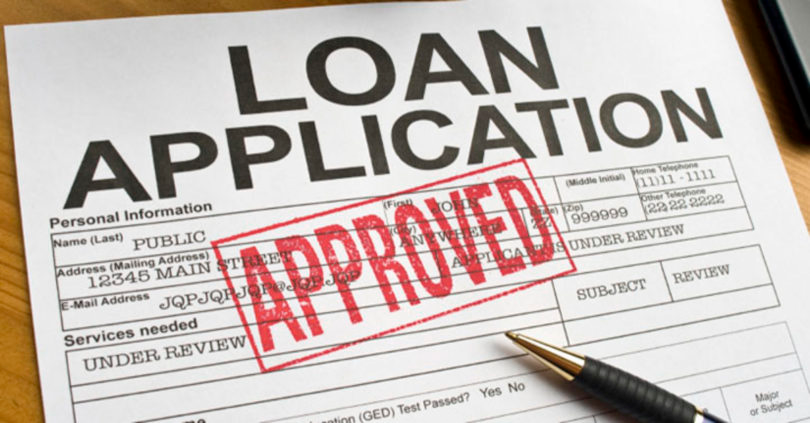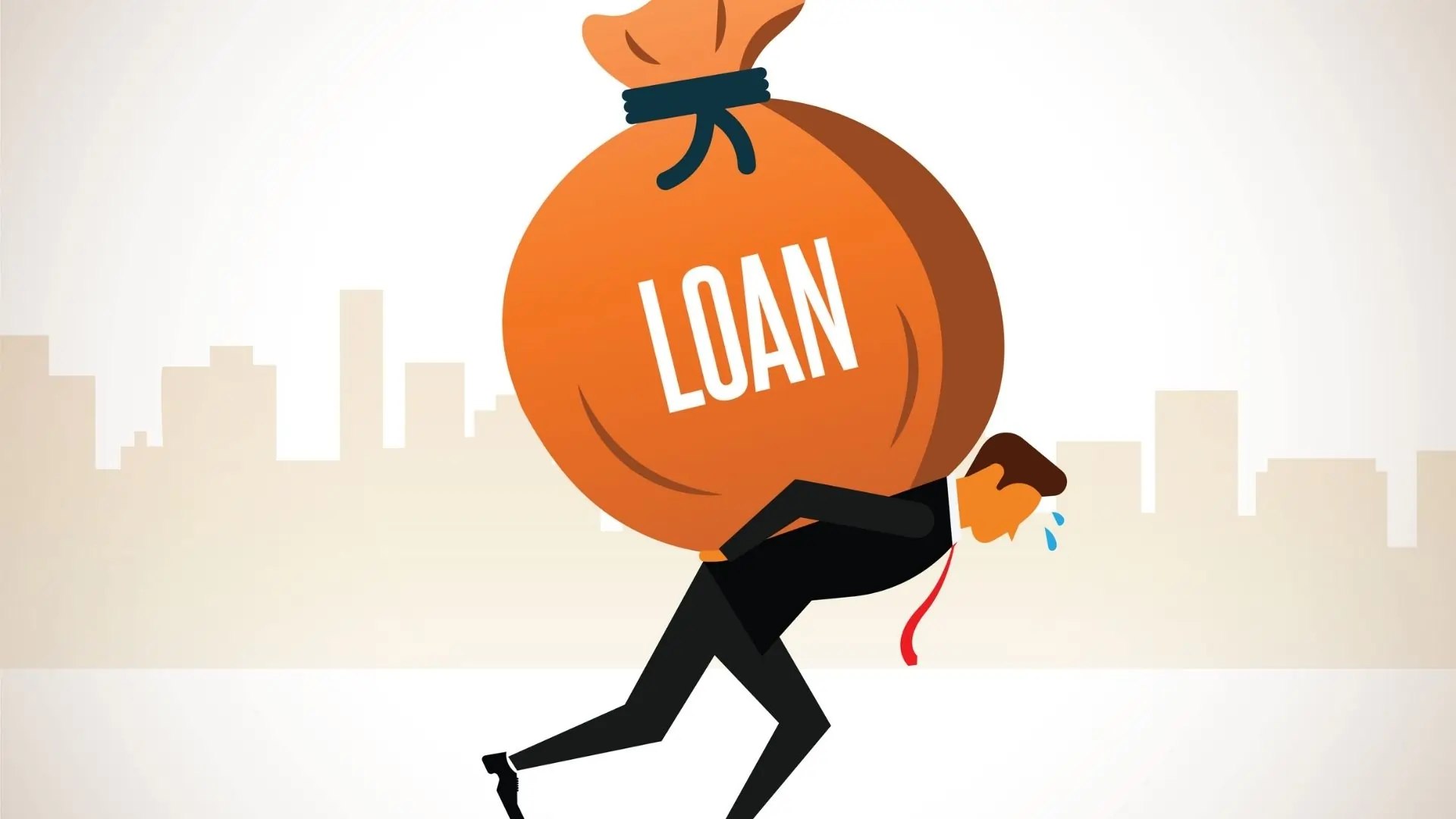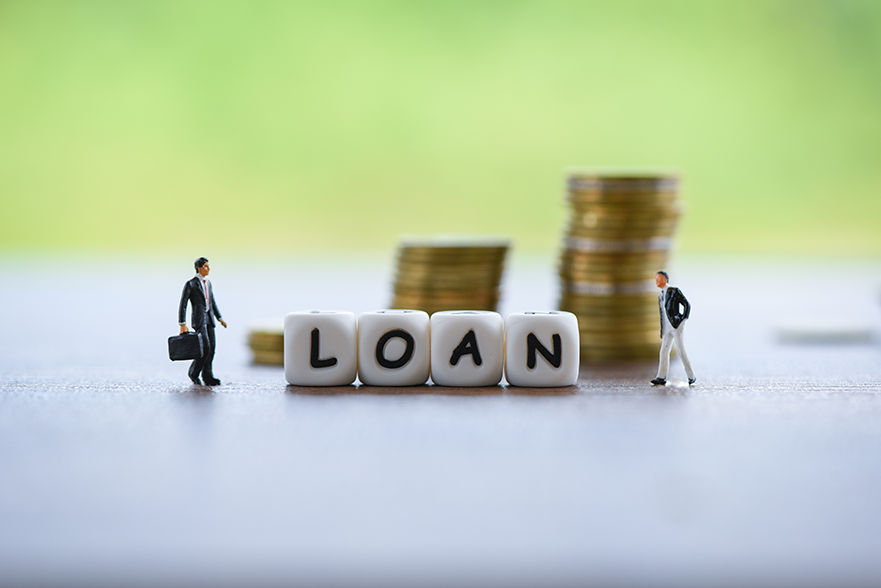Are you looking for the best government personal loan in Malaysia?
Whether you want to purchase a car, consolidate debt or finance a home renovation project, it can be not easy to decide which type of financing will give you the most bang for your buck. With so many different types of loans out there and an array of lenders offering them, we understand how overwhelming it can feel. That’s why we’ve created this comprehensive guide that covers everything, including eligibility criteria, interest rates, application process and repayment terms, so you have all the information necessary to make informed choices when applying for a personal loan with the Malaysian Government.
Overview of Government Personal Loans in Malaysia
 Malaysia offers a variety of personal loan options for its citizens, but one that stands out is the government personal loan (Pinjaman Koperasi). Through this type of financing, the Malaysian Government aims to support its citizens in achieving their financial goals and improving their quality of life. The government personal loan in Malaysia is a form of unsecured loan, meaning it does not require collateral or security. This makes it accessible to a wide range of applicants, including those who may not have assets to offer as collateral. Additionally, the government personal loan typically offers lower interest rates compared to other types of loans, making it an attractive option for many borrowers. One of the main advantages of the government personal loan is its flexibility in terms of usage. Unlike some loans that are limited to a specific purpose, such as car loans or home loans, the government personal loan can be used for a variety of purposes. This includes financing education, medical expenses, home renovations, debt consolidation, and more. This allows borrowers to have more control over how they use the funds and makes it easier to achieve their financial goals. The Malaysian Government offers longer repayment periods compared to other lenders, which can range from one to ten years depending on the loan amount and borrower’s creditworthiness. This allows borrowers to manage their finances more comfortably and make affordable monthly payment.
Malaysia offers a variety of personal loan options for its citizens, but one that stands out is the government personal loan (Pinjaman Koperasi). Through this type of financing, the Malaysian Government aims to support its citizens in achieving their financial goals and improving their quality of life. The government personal loan in Malaysia is a form of unsecured loan, meaning it does not require collateral or security. This makes it accessible to a wide range of applicants, including those who may not have assets to offer as collateral. Additionally, the government personal loan typically offers lower interest rates compared to other types of loans, making it an attractive option for many borrowers. One of the main advantages of the government personal loan is its flexibility in terms of usage. Unlike some loans that are limited to a specific purpose, such as car loans or home loans, the government personal loan can be used for a variety of purposes. This includes financing education, medical expenses, home renovations, debt consolidation, and more. This allows borrowers to have more control over how they use the funds and makes it easier to achieve their financial goals. The Malaysian Government offers longer repayment periods compared to other lenders, which can range from one to ten years depending on the loan amount and borrower’s creditworthiness. This allows borrowers to manage their finances more comfortably and make affordable monthly payment. 
Advantages of applying for a government personal loan
 Applying for a government personal loan in Malaysia has numerous advantages compared to other types of financing. These loans are specifically designed to cater to the needs of Malaysian citizens and offer several benefits that can make them an attractive option for those seeking financial assistance. In this section, we will discuss some of the main advantages of applying for a government personal loan.
Applying for a government personal loan in Malaysia has numerous advantages compared to other types of financing. These loans are specifically designed to cater to the needs of Malaysian citizens and offer several benefits that can make them an attractive option for those seeking financial assistance. In this section, we will discuss some of the main advantages of applying for a government personal loan.
Lower interest rates
One of the main advantages of a government personal loan is that it typically comes with lower interest rates compared to other types of loans. This is because these loans are backed and regulated by the Government, making them more secure for lenders. With lower interest rates, you can save a significant amount of money throughout your loan repayment period. This can make a big difference, especially for those looking to finance a larger project or purchase.
Flexible repayment terms
Government personal loans also tend to offer more flexible repayment terms compared to other types of loans. This means you can negotiate the loan duration and monthly payments that best suit your financial situation. You can choose between shorter or longer-term loans depending on your needs and budget. This flexibility can help you better manage your finances and avoid any potential financial strain.
Easier eligibility criteria
Applying for a government personal loan may also be easier compared to other types of loans. This is because the eligibility criteria are often less stringent, making it more accessible for those with lower credit scores or little credit history. Government loans also have set income requirements, which can make it easier to determine if you meet the necessary criteria. This can save you time and effort in the application process.
Government support and protection
As the Government backs these loans, there is a level of support and protection provided for borrowers. In case of any unforeseen circumstances or financial difficulties, the Government may offer assistance through loan deferment options or other forms of aid to help you manage your loan repayments.
No hidden fees
When applying for a government personal loan, you can rest assured that there are no hidden fees or additional charges. These loans have transparent terms and conditions, making it easier to understand the total cost of borrowing and avoid any surprises.
Accessible for all types of borrowers
Another advantage of government personal loans (Loan Koperasi Kerajaan) is that they are accessible to all types of borrowers, including those from lower-income backgrounds or with a lack of collateral. This can provide equal opportunities for individuals to access financial aid and improve their financial situation.
Requirements for applying for a government personal loan
While government personal loans have more relaxed eligibility criteria compared to other types of loans, there are still some requirements that applicants must meet. These vary depending on the specific loan program and lender, but here are some general requirements you may need to fulfill:
- Malaysian citizenship
- Minimum age of 18 years old
- Stable income with proof of employment or business
- Good credit score and history
- Satisfactory debt-to-income ratio
- Valid identification documents
It is important to note that meeting these requirements does not guarantee approval for a government personal loan. Lenders may also consider other factors such as the purpose of the loan, your financial stability and ability to repay, and overall creditworthiness.
A step-by-step guide to applying for a government personal loan
 If you are interested in applying for a government personal loan, here is a step-by-step guide to help you through the process. First, research and compare different government personal loan options. This will help government employees and you understand the various interest rates, repayment terms, and eligibility criteria offered by different lenders. Next, gather all the necessary documents, such as identification documents, proof of income and employment, credit score reports, and any other relevant financial information. Once you have selected a suitable lender and are ready to apply for the loan tenure, you can either do so online or in person at a designated government agency or bank. When filling out the application form, make sure to provide accurate and complete information, as any discrepancies may delay the approval process. You may also be required to submit additional documents or undergo a credit assessment before your loan is approved. This is to ensure that you are financially capable of repaying the loan. Once your application is approved, carefully review the terms and conditions of the loan before signing and stamp duty act any contracts. Make sure to understand the interest rate, repayment schedule, and any other agency fee or charges associated with the loan. After signing the contract, you will receive the confirmation letter and the loan amount either through a direct deposit or check. Make sure to keep track of your loan repayments and make timely payments to avoid any penalties or additional charges. If you face any financial difficulties during the repayment period, reach out to your lender for assistance and explore options such as deferment or restructuring of the loan.
If you are interested in applying for a government personal loan, here is a step-by-step guide to help you through the process. First, research and compare different government personal loan options. This will help government employees and you understand the various interest rates, repayment terms, and eligibility criteria offered by different lenders. Next, gather all the necessary documents, such as identification documents, proof of income and employment, credit score reports, and any other relevant financial information. Once you have selected a suitable lender and are ready to apply for the loan tenure, you can either do so online or in person at a designated government agency or bank. When filling out the application form, make sure to provide accurate and complete information, as any discrepancies may delay the approval process. You may also be required to submit additional documents or undergo a credit assessment before your loan is approved. This is to ensure that you are financially capable of repaying the loan. Once your application is approved, carefully review the terms and conditions of the loan before signing and stamp duty act any contracts. Make sure to understand the interest rate, repayment schedule, and any other agency fee or charges associated with the loan. After signing the contract, you will receive the confirmation letter and the loan amount either through a direct deposit or check. Make sure to keep track of your loan repayments and make timely payments to avoid any penalties or additional charges. If you face any financial difficulties during the repayment period, reach out to your lender for assistance and explore options such as deferment or restructuring of the loan.
Risks associated with taking out a Government Personal Loan Malaysia
 Here are the potential risks to consider before applying for a government personal financing i loan in Malaysia:
Here are the potential risks to consider before applying for a government personal financing i loan in Malaysia:
- Defaulting on loan repayments
One of the biggest risks associated with taking out any loan is defaulting on your payments. This can result in late fees, penalties, and even legal action by the lender. To avoid this risk, it is important to carefully assess your financial situation and ensure that you can comfortably afford the monthly payments before taking out a loan. It is also crucial to make timely payments and communicate with your lender if you encounter any financial difficulties.
- High-interest rates
While Government personal loans often offer lower interest rates compared to conventional loans, they may still be higher than other forms of rhb personal financing i such as savings or investments. This means that over time, you may pay more in interest than the initial loan amount. To mitigate this risk, it is important to shop around and compare interest rates from different lenders before making a decision. It would help if you also considered your overall financial goals and whether taking out a loan at a higher interest rate aligns with them.
- Impact on credit score
Taking out a government personal loan can also affect your credit score. This is because lenders may conduct a credit check before approving your loan, and missed or late payments can negatively impact your score. To avoid this risk, make sure to only take out a loan that you are confident you can repay on time. You should also monitor your credit report regularly and address any errors or discrepancies as soon as possible.
- Potential for additional fees
While Government islamic personal loans (Pinjaman Syariah) are known to have transparent terms and conditions, there may still be hidden fees or charges that you need to be aware of. This can include processing fees, early repayment penalties, or insurance costs. To avoid any surprises, make sure to carefully review the loan agreement and ask your lender about any potential additional fees before signing.
- Lack of financial education
One of the biggest risks for borrowers is a need for more knowledge and understanding about personal finance. This can lead to overspending, mismanaging debt, and overall poor financial decisions. Before taking out any loan, it is important to educate yourself on basic financial concepts such as budgeting, debt management, and credit scores. You can also seek advice from a financial advisor or counsellor to help you make informed decisions.
How much interest will I have to pay?
 The amount of interest you will have to pay on a government personal loan in Malaysia depends on various factors such as the loan amount, repayment term, and your creditworthiness. Typically, government personal loans offer lower interest rates compared to other forms of personal financing. This is because the Government backs them and often has stricter eligibility criteria to ensure that borrowers are able to repay the loan. The interest rate may also vary depending on the type of government personal loan you are applying for. For example, a student loan may have a lower interest rate compared to a business startup loan. To get an estimate of how much interest you will have to pay, you can use online calculators or consult with your lender. However, keep in mind that civil sector are just rough estimates, and the actual interest rate may vary based on your circumstances. It is also important to note that federal and state governments personal loans in Malaysia often have fixed interest rates, meaning they stay the same throughout the repayment period. This can make budgeting and planning for loan repayments easier compared to variable interest rates. Additionally, some lenders may offer incentives for timely or early repayment, such as lower interest rates or waived fees. It is important to inquire about these options and take advantage of them. If you are struggling with high-interest rates on your current government personal loan, consider refinancing at a lower rate. This involves taking out a new loan with better terms to pay off your existing loan.
The amount of interest you will have to pay on a government personal loan in Malaysia depends on various factors such as the loan amount, repayment term, and your creditworthiness. Typically, government personal loans offer lower interest rates compared to other forms of personal financing. This is because the Government backs them and often has stricter eligibility criteria to ensure that borrowers are able to repay the loan. The interest rate may also vary depending on the type of government personal loan you are applying for. For example, a student loan may have a lower interest rate compared to a business startup loan. To get an estimate of how much interest you will have to pay, you can use online calculators or consult with your lender. However, keep in mind that civil sector are just rough estimates, and the actual interest rate may vary based on your circumstances. It is also important to note that federal and state governments personal loans in Malaysia often have fixed interest rates, meaning they stay the same throughout the repayment period. This can make budgeting and planning for loan repayments easier compared to variable interest rates. Additionally, some lenders may offer incentives for timely or early repayment, such as lower interest rates or waived fees. It is important to inquire about these options and take advantage of them. If you are struggling with high-interest rates on your current government personal loan, consider refinancing at a lower rate. This involves taking out a new loan with better terms to pay off your existing loan.
How much can a bank loan me?
The amount that banks can loan you depends on several factors, including your creditworthiness and the type of loan you are applying for. Generally, banks will consider your income, credit score, and debt-to-income ratio when determining how much to lend you. Your income is one of the most important factors that banks will look at when evaluating a loan application. This includes not just your salary deduction but also any other sources of income, such as investments, rental property, or side hustles. A higher income can increase your chances of being approved for a larger loan amount. Your credit score is another crucial factor that banks take into consideration. This number is based on your credit history and gives lenders an idea of how likely you are to repay the loan on time. A higher credit score can help you qualify for a larger loan amount, while a lower score may result in a lower loan amount or even rejection. Banks also consider your debt-to-income ratio, which is the percentage of your income that goes towards paying off debt. This includes any existing loans, credit card balances, and monthly bills. A lower debt-to-income ratio indicates a lower risk for the bank and may increase your chances of being approved for a larger loan amount. The minimum and maximum loan amounts offered by banks also vary depending on the type of loan. For example, a personal loan may have a minimum amount of RM5,000 and a maximum amount of RM100,000, while a home loan can range from hundreds of thousands to millions.
What is a credit score? And how does it differ from a credit report?
A credit score is a three-digit number that reflects your creditworthiness based on your credit history. It serves as a measure of how likely you are to repay any borrowed funds. In Malaysia, credit scores typically range from 300 to 850, with a higher score indicating lower risk and better chances of being approved for loans. On the other hand, a credit report is a detailed record of your credit history, including all your past and current credit accounts, payment history, and outstanding debts. It also includes information such as your details, government sector employees history, and any legal actions taken against you related to credit. While a credit score is based on the information in your credit report, they are not the same thing. Your credit score is a numerical representation of your creditworthiness, while your credit report is a comprehensive record of your credit history. Lenders may consider both when evaluating a loan application, but they may also place more weight on one over the other depending on their policies and criteria. It is important to regularly check both your credit score and credit report to ensure that they are accurate and up-to-date. Any errors or discrepancies should be reported and corrected, as they can affect your creditworthiness and borrowing opportunities.
What happens if I pay my loan instalment late?
If you fail to make a loan installment payment on time, it can have negative consequences on your credit score and overall financial health. Late payments may result in late fees and interest charges, which can increase the total cost of your loan. Moreover, consistently paying late or missing payments altogether can severely damage your credit score. This can make it difficult for you to obtain future loans or credit and may also result in higher interest rates if you are approved. In some cases, lenders may also report late payments to credit bureaus, which can further impact your credit score and make it harder for you to borrow money in the future. It is important to communicate with your lenders if you are unable to make a payment on time. They can offer alternatives, such as a grace period or payment plan, which can help you avoid negative consequences.
Tips and tricks on getting the best deal when applying for a government personal loan
Here are the top tips and tricks to keep in mind when applying for a government personal loan in Malaysia:
- Shop around: Don’t settle for the first lender you come across. Do your research and compare interest rates, fees, and terms from different lenders to find the best deal.
- Negotiate: Feel free to negotiate with your lender for better terms or lower interest rates. If you have a good credit score or a stable income, you can negotiate for a better deal.
- Improve your credit score. A higher credit score can help you qualify for lower interest rates and better loan terms. Work on improving your credit by paying bills on time and keeping outstanding debts low.
- Consider other costs: Aside from interest rates, also consider other costs such as processing fees, late payment fees, and early repayment penalties when comparing loan offers.
- Read the fine print: Before signing any loan agreement, make sure to carefully read and understand all terms and conditions. Pay attention to hidden fees or clauses that may result in additional costs.
- Beware of scams: Be cautious of unsolicited offers or promotions for government personal loans. Always verify the legitimacy of the lender before providing any personal or financial information.
Remember, always make informed decisions and consider your financial situation carefully before taking on any loan. Overall, being a responsible borrower can increase your chances of getting the best deal and managing your loans successfully.
FAQs
What is the minimum salary to get a personal loan in Malaysia?
The minimum salary requirement for a personal loan in Malaysia varies among lenders. Generally, it ranges from RM2,000 to RM3,000 per month. Some banks may also require a higher minimum income for non-Malaysian citizens or applicants with lower credit scores.
Can I apply for more than one government personal loan at a time?
Yes, you can apply for more than one government personal loan at a time. However, it is important to consider your repayment capabilities and the impact on your credit score before taking on multiple loans.
What is the difference between a secured and unsecured personal loan?
A secured loans requires collateral such as property or savings as security for the lender in case the borrower defaults on payments. On the other hand, an unsecured personal loan does not require collateral but usually has higher interest rates to compensate for the risk. Government personal loans in Malaysia are typically unsecured loans.
How long does it take to get a government personal loan approved?
The time frame for approval of a government personal loan can vary among lenders. Some may approve and disburse funds within a few days, while others may take a few weeks. It is important to check with the lender for their specific processing time and plan accordingly for your financial needs.
By taking the time to explore government personal loans in Malaysia, you can arm yourself with the knowledge you need to make informed decisions. It is important to do this research prior to signing any loan contracts so that your finances are safeguarded and remain in a secure position. As always, we suggest looking for other alternatives before committing to a loan, as well as weighing the pros and cons of any decisions that you make. Above all, be sure not to rush into anything and take your time when considering government personal loans in Malaysia. Doing research can mean the difference between getting bogged down in debt or feeling peace of mind about your financial future. Whichever option you choose, we wish you luck on your journey to financial security – so start researching today!
Name: Koperasi 1 Malaysia
Address: 12-2, Jalan Rimbunan Raya, Laman Rimbunan Kepong, 52100 KL Phone Number: 012-505 6915 Email: info.koperasi1malaysia@gmail.com Google Map Location: Click here Linktree: Pinjaman Koperasi Blog: Pinjaman Koperasi Blogspot: Pinjaman Koperasi Google: Pinjaman Koperasi

The post Government Personal Loan (Kuala Lumpur) Malaysia appeared first on Pinjaman Peribadi Koperasi Kerajaan Malaysia | Loan Pembiayaan Koperasi Terbaik | Koperasi 1Malaysia.





